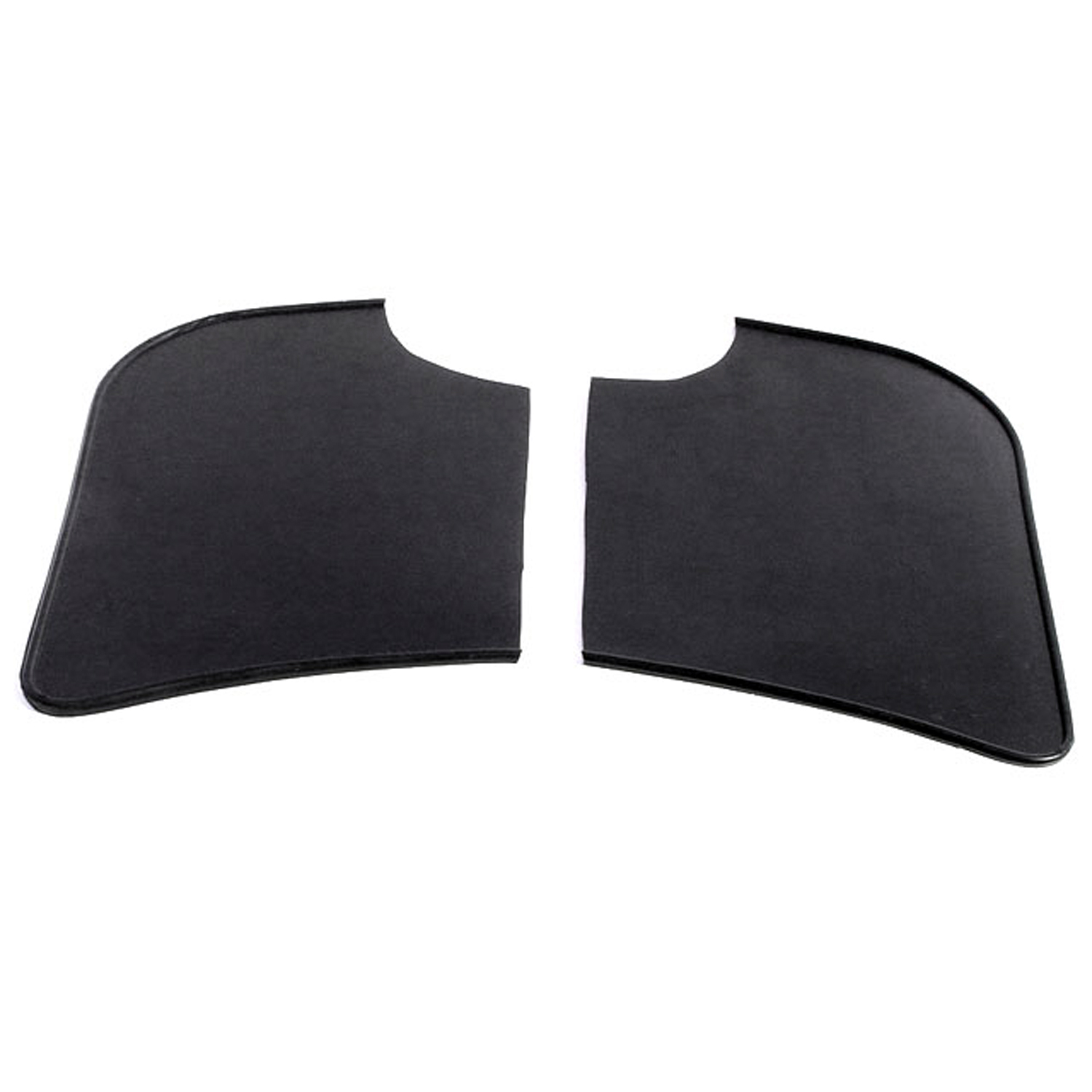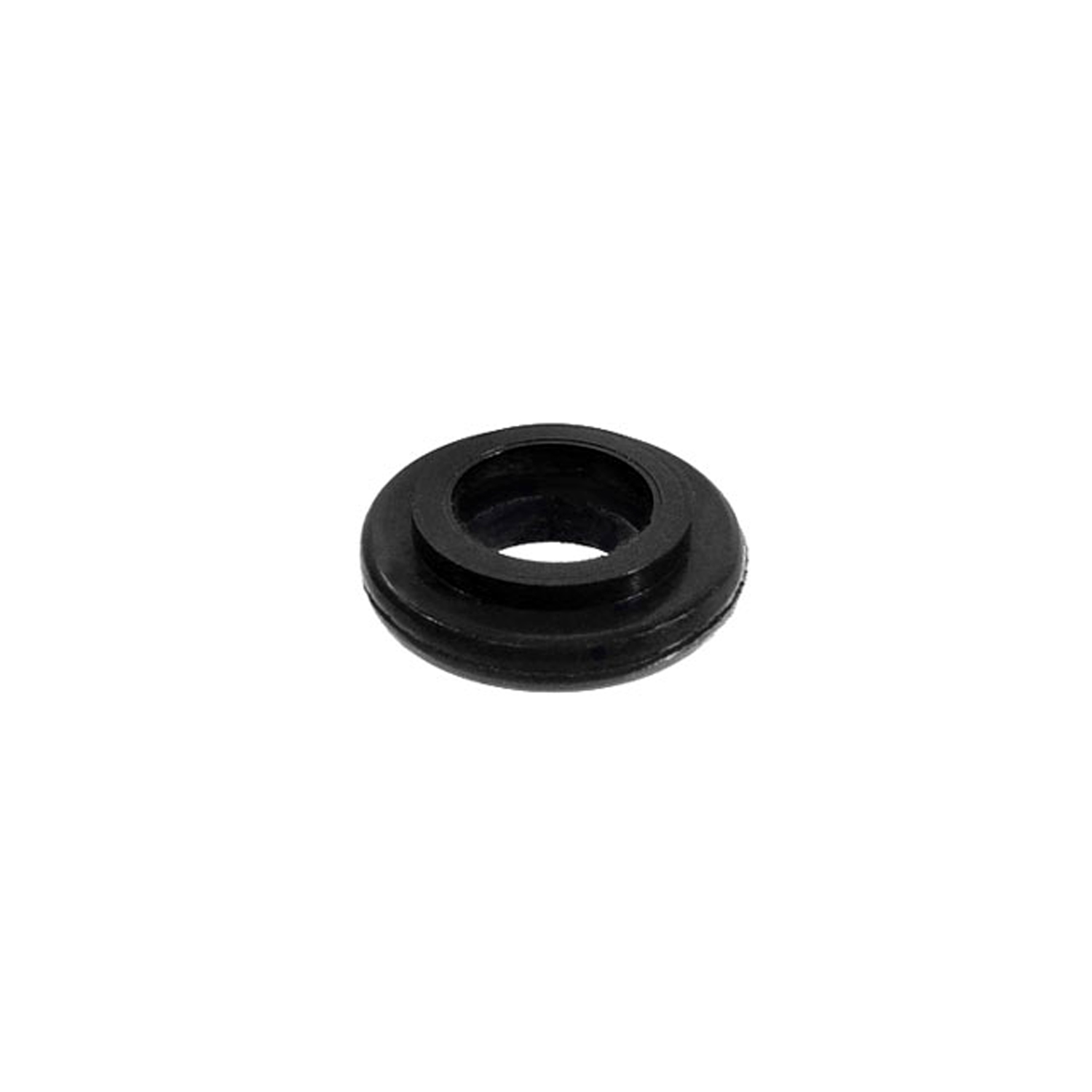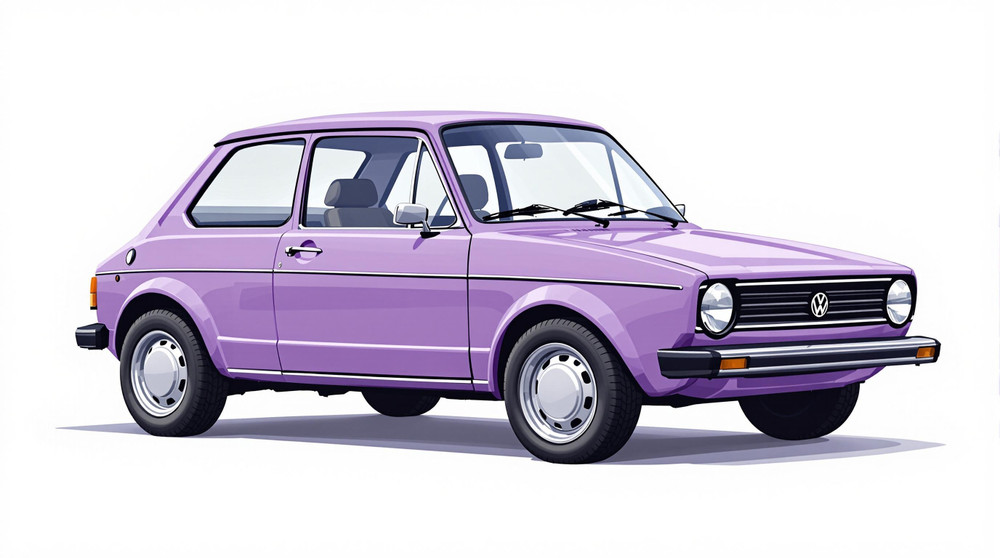Image of 1975 Volkswagen Rabbit, Note: These illustrations use artistic license and may differ from actual historical models.
Performance Metrics
Fundamental Metrics
Emotional Appeal
MMP Rating
| Engine Specifications | |
|---|---|
| Engine Options: | Inline 4 |
| Displacement Range: | 1.5L |
| Horsepower Range: | 70 HP |
| Torque: | 80 lb-ft |
| Compression Ratio: | 8.5:1 |
| Ignition System: | Electronic Ignition |
| Cooling System: | Water-cooled |
| Performance Specifications | |
| 0-60 Time: | 12 seconds |
| 1/4 Mile Time: | 18 seconds |
| Top Speed: | 93 mph |
| Transmission and Drive | |
| Drive Type: | FWD (Front Wheel Drive) |
| Transmission Type: | 4-speed manual |
| Fuel and Efficiency | |
| Fuel System Type: | Fuel Injection |
| MPG: | 25-30 MPG |
| Dimensions and Brakes | |
| Brakes: | Front Disc / Rear Drum |
| Wheelbase: | 94.5 inches |
| Weight: | 1,800 lbs |
Note: Specifications for classic cars are given to the best of our ability, considering the limited and variant data available.
Introduction
The 1975 Volkswagen Rabbit hopped onto the automotive scene as a sprightly newcomer, ready to redefine compact car expectations. Born from the innovative minds at Volkswagen, this hatchback was engineered in response to the oil crisis of the 1970s, offering a fuel-efficient alternative to the gas-guzzlers of its era. As the successor to the beloved Beetle, the Rabbit—known as the Golf in other markets—carried the weight of its predecessor's legacy while charting a new course for Volkswagen's future. A particularly unique fact about this vehicle is that it was the first front-wheel-drive car produced by VW, which marked a significant shift in their design philosophy.
Design and Innovation
The 1975 Volkswagen Rabbit's exterior styling was a breath of fresh air with its angular lines and functional form. The design ethos was simple yet revolutionary for the brand, with a two-box layout that maximized interior space. Inside, occupants were greeted with a no-nonsense dashboard and practical controls. The quality of materials struck a balance between durability and cost-effectiveness, reflecting its utilitarian purpose. Technologically, it featured transverse engine mounting and front-wheel drive, innovations that were groundbreaking for Volkswagen at that time. Color options ranged from vibrant hues to more subdued tones, with Mars Red and Miami Blue being among the popular choices. The Rabbit was available in various body styles, but it was the two-door hatchback that became emblematic of this model's identity.
Historical Significance
The introduction of the Rabbit represented a pivotal moment in automotive history. It set new benchmarks for compact car design and efficiency, influencing a generation of vehicles that followed. Its front-wheel-drive layout and water-cooled engine were departures from VW's traditional rear-engine, air-cooled formula, signifying a major technological leap forward. The Rabbit's global success laid down the template for modern hatchbacks and solidified Volkswagen's reputation as an innovator.
Performance and Handling
Underneath its modest exterior, the 1975 Volkswagen Rabbit delivered spry performance for its class. With top speeds hovering around 90 mph and acceleration from 0-60 mph achievable in just over 10 seconds, it offered peppy responsiveness for everyday driving. Handling was nimble thanks to its lightweight chassis and well-tuned suspension, which absorbed road imperfections while maintaining composure on twisty paths. Driving a Rabbit was an engaging experience; drivers enjoyed the tactile feedback through the steering wheel and the distinct hum of its inline-four engine.
Ownership Experience
The Rabbit quickly became popular as a daily driver due to its reliability and economical operation. It also found favor among enthusiasts who appreciated its potential for customization and racing capabilities in various amateur leagues. Maintenance was straightforward, making it an ideal choice for owners who preferred to handle repairs themselves. Despite some criticisms regarding rust issues or underwhelming interior appointments compared to luxury contemporaries, owners cherished their Rabbits for their practicality and charm.
Fun Facts
A few intriguing tidbits about the 1975 Volkswagen Rabbit include special editions like the "Swallowtail" model, identifiable by unique rear panel features. While not known for breaking speed records, it did set sales records for Volkswagen in North America. Celebrities such as comedian David Letterman were known to own Rabbits during their heyday. Despite some critiques about its power output or finish quality compared to rivals, it proved itself as an endearing underdog with lasting appeal.
Collector's Information
Today, collectors seek out early Rabbits for their historical significance and nostalgic value. While production numbers were high—with estimates well into hundreds of thousands—finding one in pristine condition can be challenging due to age-related wear and susceptibility to rust. Values range significantly based on condition; well-preserved examples can fetch anywhere from $5,000 to $15,000 or more depending on originality and historical provenance. The market trend shows appreciation for unmodified, low-mileage Rabbits as collectibles continue to gain interest.
Conclusion
The 1975 Volkswagen Rabbit stands as a testament to innovation during an era of change in the automotive industry. Its blend of practicality, efficiency, and driving enjoyment has cemented its place in history as both a people's car and an enthusiast's delight. Whether remembered as a reliable companion or celebrated as a collector's item, the Rabbit remains an enduring symbol of Volkswagen's adaptability and forward-thinking spirit.
1975 Volkswagen Rabbit Catalog of Parts
 1975 Volkswagen Rabbit Gravel Shields. Molded flat without metal backing plates-FS 40Gravel Shields. Molded flat without metal backing plates. Apply with contact cement. 7-5/8" long X 5-5/8" wide at top. Pair
1975 Volkswagen Rabbit Gravel Shields. Molded flat without metal backing plates-FS 40Gravel Shields. Molded flat without metal backing plates. Apply with contact cement. 7-5/8" long X 5-5/8" wide at top. Pair 1975 Volkswagen Rabbit Oil Cooler Seal. 7/16" I.D., 7/8" O.D. Each-RP 8-BOil Cooler Seal. 7/16" I.D., 7/8" O.D. Each
1975 Volkswagen Rabbit Oil Cooler Seal. 7/16" I.D., 7/8" O.D. Each-RP 8-BOil Cooler Seal. 7/16" I.D., 7/8" O.D. EachWhy Choose Metro?
For over 100 years, Metro Moulded Parts has been the pinnacle of quality in classic car restoration parts. Our commitment to precision and authenticity in every component ensures a perfect fit and an OEM-level appearance.
- Expert Craftsmanship & Quality: Each part is a testament to our dedication to reliability and perfection, crafted from original designs and thoroughly tested.
- Advanced Technology: We use cutting-edge techniques to create flawless, long-lasting parts that surpass others in performance.
- SuperSoft Sponge – The Ultimate Door Seal: Not only are our door seals 30% softer than competitors', but they're also guaranteed to never leak. They effectively reduce wind and road noise, enhancing your classic car's comfort and driving experience.
- Proudly American: Our parts are a product of American craftsmanship, made in the USA with a spirit of excellence and heritage.
- Unrivaled Warranty: We back our products with a 30-year industry-leading warranty, a testament to our confidence in their quality.
Join us in preserving the legacy of classic cars with parts that are crafted for perfection, not just made.

